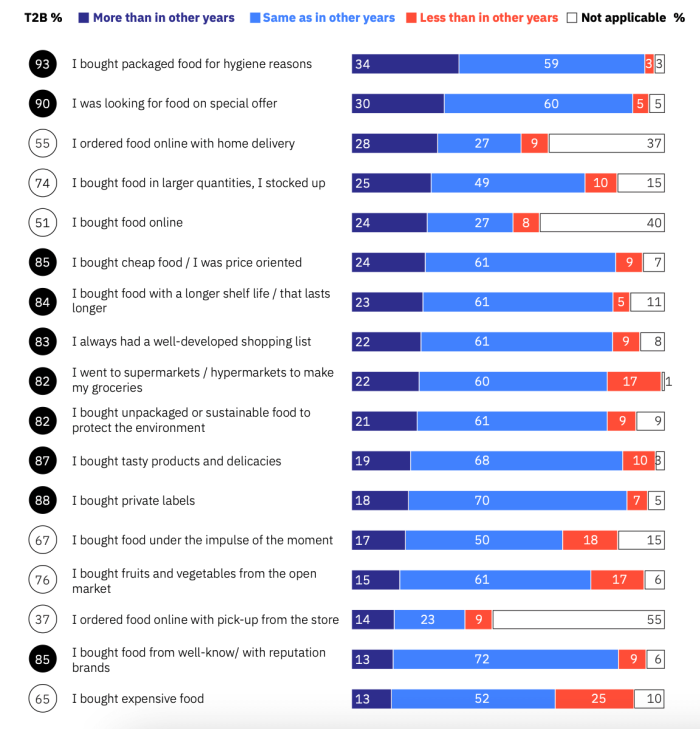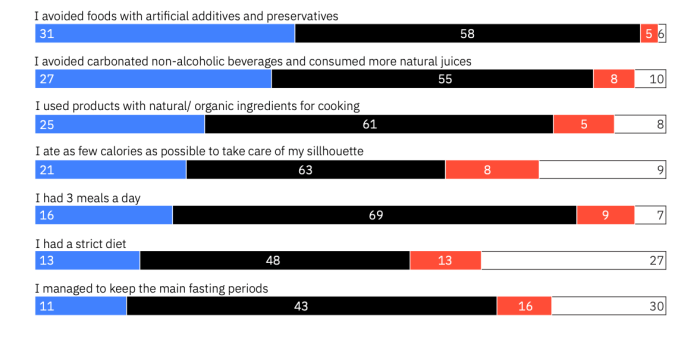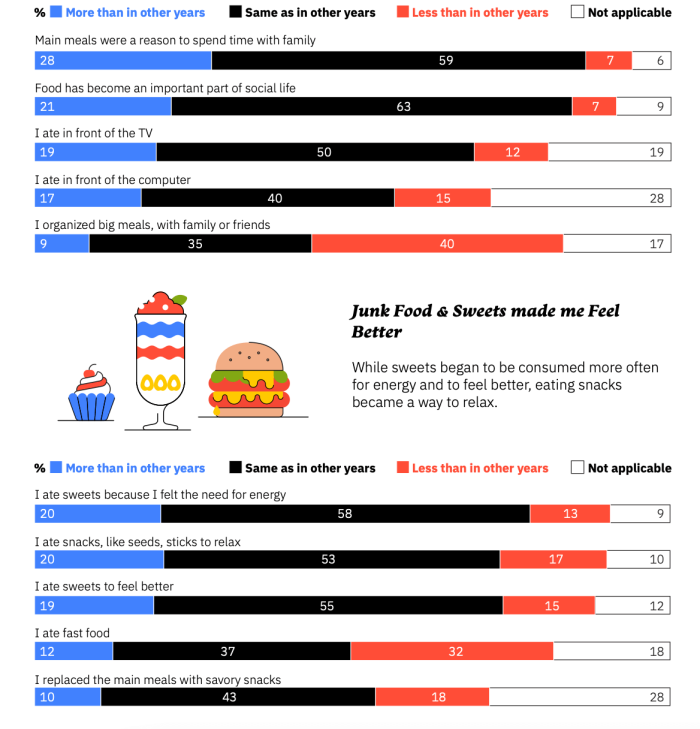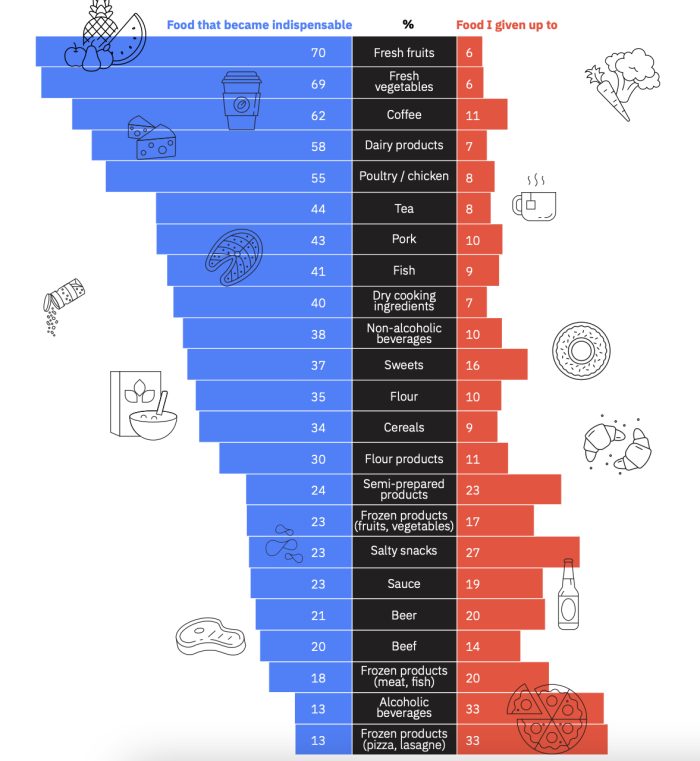According to the study “The impact of the COVID-19 pandemic on food consumption”, conducted by Starcom Romania, Romanians have been thinking about food spending in the last year and have continued to buy familiar brands. At the same time, they became more aware of what they ate and bought healthy foods: almost 90% of them avoided products with artificial additives, 86% used natural or organic ingredients when preparing food, and 82% avoided carbonated drinks.
The main behaviour features when shopping for food.
Naturally, the pandemic has made Romanians buy more packaged food than in other years for hygiene reasons (93%), but they also continued to buy unpackaged food, mainly for environmental protection reasons (82%). At the same time, Romanians turned to non-perishable foods or with a more generous expiration date (84%), made purchases based on shopping lists (83%) and purchased large quantities at once (74%) in order to stock up and avoid crowded spaces.
To a large extent, respondents stated that they focused on food at special offers (90%), paying more attention to the price compared to other years. However, familiar brands have remained among consumers’ choices, together with tasty products consumed to satisfy the need for pampering.
The main criteria for food selection
In addition to price (69%), Romanians took into account other criteria when choosing to buy their food: product quality (68%), freshness (56%), previous experience (39%) and the list of ingredients (37%).
Young people, aged between 18 and 34, were more attracted to packaging and promotion/advertising compared to other age segments, while for adults over 55, freshness, personal experience, natural ingredients and favourite brands were more important.
Consumption of healthy foods
During the pandemic, health became a major concern for Romanians. Thus, they began to be more aware of what they consume: almost 90% of them avoided foods with artificial additives and preservatives, 86% used natural or organic ingredients in food preparation, and 82% avoided carbonated drinks.
Cooking, hobby and reason for socializing at the same time
Cooking has become one of the hobbies developed by people from urban areas during the pandemic. In addition, the new context led to changes in cooking habits: people tried new recipes (88%) and new types of food (86%) and prepared homemade desserts to create moments of family pampering (82%). Although 84% of respondents stated that food is an important component of their social life, people from urban areas were cautious during the pandemic: they ate meals as a family (87%), in front of the TV (67%), or in front of the computer (57%).
Evolution of food consumption preferences
Romanians started consuming healthier products during the pandemic period: 38% of them consumed more fresh vegetables, 37% more fresh fruits and 29% more tea and dairy products (yoghurt, cheese) compared to previous years. Coffee was also more consumed compared to previous years (28%), especially among active people aged 18-34 (34%).
On the other hand, Romanians consumed fewer frozen and semi-prepared products, as well as fewer alcoholic beverages.
People aged 25-34 have changed their eating behaviour the most.
Top foods consumed
For 7 out of 10 Romanians from urban areas, fresh fruits and vegetables became indispensable during the pandemic period. Similarly, coffee (62%), dairy products (58%) and poultry (55%) are now staple elements in Romanians’ diet.
Top ingredients used in food preparation
Nonetheless, meat continues to be one of the main products used in cooking (64%), along with fruits and vegetables (58%), followed by spices (52%) and oils (52%). Other products used are rice, dairy products and fish.
Younger people were more attracted to using flour and flour products, as well as frozen fruits, vegetables and sugar, compared to other age segments.
Featured products
 All Publicis Groupe Romania proprietary data tools in one place.
All Publicis Groupe Romania proprietary data tools in one place.Discover the power of our tools and feel free to get in touch.












